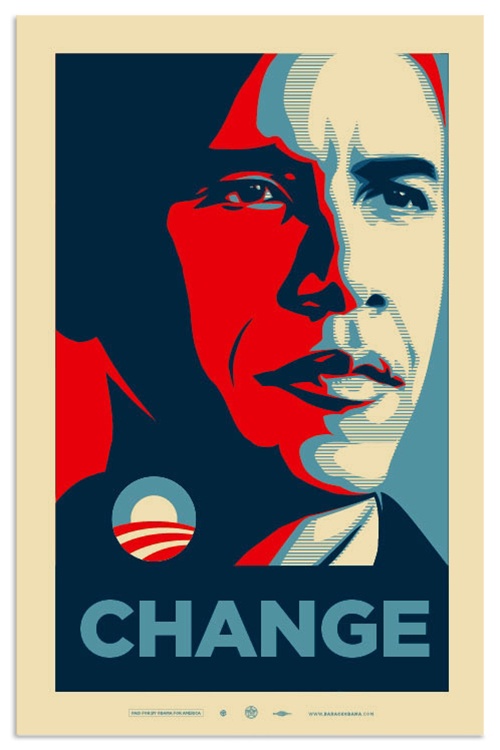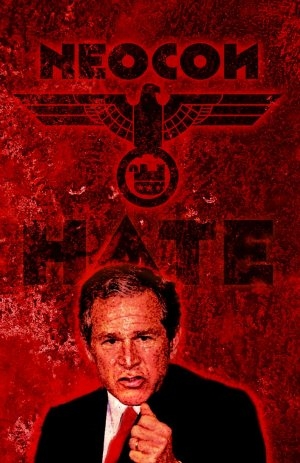
 THE NEW YORKER: Never in living memory has an election been more critical than the one fast approaching—that’s the quadrennial cliché, as expected as the balloons and the bombast. And yet when has it ever felt so urgently true? When have so many Americans had so clear a sense that a Presidency has—at the levels of competence, vision, and integrity—undermined the country and its ideals?
THE NEW YORKER: Never in living memory has an election been more critical than the one fast approaching—that’s the quadrennial cliché, as expected as the balloons and the bombast. And yet when has it ever felt so urgently true? When have so many Americans had so clear a sense that a Presidency has—at the levels of competence, vision, and integrity—undermined the country and its ideals?
The incumbent Administration has distinguished itself for the ages. The Presidency of George W. Bush is the worst since Reconstruction, so there is no mystery about why the Republican Party—which has held dominion over the executive branch of the federal government for the past eight years and the legislative branch for most of that time—has little desire to defend its record, domestic or foreign. The only speaker at the Convention in St. Paul who uttered more than a sentence or two in support of the President was his wife, Laura. Meanwhile, the nominee, John McCain, played the part of a vaudeville illusionist, asking to be regarded as an apostle of change after years of embracing the essentials of the Bush agenda with ever-increasing ardor.
The Republican disaster begins at home. Even before taking into account whatever fantastically expensive plan  eventually emerges to help rescue the financial system from Wall Street’s long-running pyramid schemes, the economic and fiscal picture is bleak. During the Bush Administration, the national debt, now approaching ten trillion dollars, has nearly doubled. Next year’s federal budget is projected to run a half-trillion-dollar deficit, a precipitous fall from the seven-hundred-billion-dollar surplus that was projected when Bill Clinton left office. Private-sector job creation has been a sixth of what it was under President Clinton. Five million people have fallen into poverty. The number of Americans without health insurance has grown by seven million, while average premiums have nearly doubled. Meanwhile, the principal domestic achievement of the Bush Administration has been to shift the relative burden of taxation from the rich to the rest. For the top one per cent of us, the Bush tax cuts are worth, on average, about a thousand dollars a week; for the bottom fifth, about a dollar and a half. The unfairness will only increase if the painful, yet necessary, effort to rescue the credit markets ends up preventing the rescue of our health-care system, our environment, and our physical, educational, and industrial infrastructure.
eventually emerges to help rescue the financial system from Wall Street’s long-running pyramid schemes, the economic and fiscal picture is bleak. During the Bush Administration, the national debt, now approaching ten trillion dollars, has nearly doubled. Next year’s federal budget is projected to run a half-trillion-dollar deficit, a precipitous fall from the seven-hundred-billion-dollar surplus that was projected when Bill Clinton left office. Private-sector job creation has been a sixth of what it was under President Clinton. Five million people have fallen into poverty. The number of Americans without health insurance has grown by seven million, while average premiums have nearly doubled. Meanwhile, the principal domestic achievement of the Bush Administration has been to shift the relative burden of taxation from the rich to the rest. For the top one per cent of us, the Bush tax cuts are worth, on average, about a thousand dollars a week; for the bottom fifth, about a dollar and a half. The unfairness will only increase if the painful, yet necessary, effort to rescue the credit markets ends up preventing the rescue of our health-care system, our environment, and our physical, educational, and industrial infrastructure.
At the same time, a hundred and fifty thousand American troops are in Iraq and thirty-three thousand are in Afghanistan. There is still disagreement about the wisdom of overthrowing Saddam Hussein and his horrific regime, but there is no longer the slightest doubt that the Bush Administration manipulated, bullied, and lied the American public into this war and then mismanaged its prosecution in nearly every aspect. The direct costs, besides an expenditure of more than six hundred billion dollars, have included the loss of more than four thousand Americans, the wounding of thirty thousand, the deaths of tens of thousands of Iraqis, and the displacement of four and a half million men, women, and children. Only now, after American forces have been fighting for a year longer than they did in the Second World War, is there a glimmer of hope that the conflict in Iraq has entered a stage of fragile stability.
 The indirect costs, both of the war in particular and of the Administration’s unilateralist approach to foreign policy in general, have also been immense. The torture of prisoners, authorized at the highest level, has been an ethical and a public-diplomacy catastrophe. At a moment when the global environment, the global economy, and global stability all demand a transition to new sources of energy, the United States has been a global retrograde, wasteful in its consumption and heedless in its policy. Strategically and morally, the Bush Administration has squandered the American capacity to counter the example and the swagger of its rivals. China, Russia, Iran, Saudi Arabia, and other illiberal states have concluded, each in its own way, that democratic principles and human rights need not be components of a stable, prosperous future. At recent meetings of the United Nations, emboldened despots like Mahmoud Ahmadinejad of Iran came to town sneering at our predicament and hailing the “end of the American era.” MORE
The indirect costs, both of the war in particular and of the Administration’s unilateralist approach to foreign policy in general, have also been immense. The torture of prisoners, authorized at the highest level, has been an ethical and a public-diplomacy catastrophe. At a moment when the global environment, the global economy, and global stability all demand a transition to new sources of energy, the United States has been a global retrograde, wasteful in its consumption and heedless in its policy. Strategically and morally, the Bush Administration has squandered the American capacity to counter the example and the swagger of its rivals. China, Russia, Iran, Saudi Arabia, and other illiberal states have concluded, each in its own way, that democratic principles and human rights need not be components of a stable, prosperous future. At recent meetings of the United Nations, emboldened despots like Mahmoud Ahmadinejad of Iran came to town sneering at our predicament and hailing the “end of the American era.” MORE
